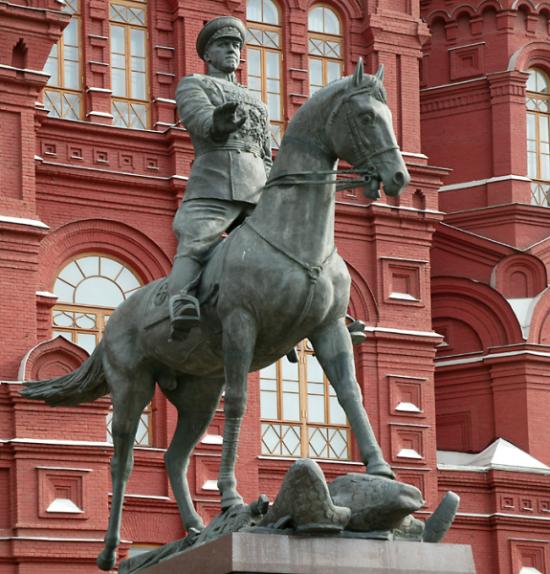
![]() Summary -- At first,
Summary -- At first,
ANDERS ÅSLUND is a Senior Fellow at the Peterson Institute for International Economics. He is the author of
In June 2008, even as the world economy began to crumble, Russian Prime Minister Vladimir Putin was sanguine about his country's economic prospects. "We have no crisis," he said. For the moment, he was on top of it all.
This, however, would soon prove to be an illusion. At first, Putin and his allies in the Kremlin continued to act invincible, either in denial or opportunistic about the threat the crisis posed. But as the crisis deepened, more liberal figures close to President Dmitri Medvedev were able to push through an initial round of much-needed economic policy adjustments. The third phase of the Russian response will become clear over the next few months, as the Kremlin chooses either to continue down the path of reform or to halt structural changes.
The crisis hit
But then the price of oil -- which had peaked in July at $147 per barrel -- started to plummet. In December, it hit a low of $35 per barrel, a potentially devastating change of fortune for a country in which commodities account for 85 percent of all exports.
After the outbreak of the war in
The Kremlin believed the oil-price decline to be temporary and thus that both businesses and consumers with hard-currency loans would be shielded from huge losses. This proved wrong, with serious consequences: in November, the Russian Central Bank abandoned its peg to a basket of dollars and euros, undertaking a gradual devaluation of the ruble. The public responded by shifting savings to dollars and euros. At the same time, the central bank tried to expand liquidity, but it was instantly transformed into foreign currency. The result was that by the end of January
In the first quarter of 2009, GDP fell by 9.5 percent compared to the first quarter of 2008, and industrial production declined by 14 percent. Falling exports, which have driven the decline, are set to plummet by nearly 50 percent this year. Naturally, the sudden economic crisis has hurt the population at large. In December, real disposable income fell by 12 percent, in sharp contrast to the steep rise in real income most Russians had experienced over the last several years. Official unemployment has reached 9.5 percent, but the government has decided to stop publishing such unfortunate numbers.
Private foreign debt has also become an acute problem.
The crisis has revealed how little Putin has done for the well-being of the Russian population during his time in office. The high economic growth of the last decade has been driven by market transformation, free capacity, and high oil prices.
Putin has been responsible for none of the above and has done nothing to help the country's current business environment, which is awful and getting worse. Most shocking is
Putin is no longer president, but he remains the most powerful figure in the country. Meanwhile, Medvedev has repeatedly stated that he makes the ultimate decisions. The personal relationship between Putin and Medvedev might be cordial, but behind them are people of very different inclinations.
Andrei Piontkovsky, a liberal critic of the Kremlin, has labeled the Putin group the "bunker" and the Medvedev group "February 1917," in reference to the revolution that led to the abdication of Czar Nicholas II. The Putin group consists of hard-liners from the former Soviet security services who were close to Putin in
The crisis has delivered a rude shock to
Although the earlier government policy of nationalization seems to have been abandoned, there remains a danger that a return of high oil prices will allow Putin and the Kremlin hard-liners to push back.
So far, the incompleteness of recent reforms, compounded by extraordinary corruption and a high dependence on commodity exports, makes
Source: http://www.foreignaffairs.com/articles/65098/anders-åslund/the-kremlins-crisis

2 comments:
One of Russia's claims to fame is to have initiated the biggest debt default in the history of mankind ninety one years ago. Ever since the 1918 repudiation, successive Russian governements have been successfully flouting the successor governement doctrine of settled international law, and the 1918 default is still unresolved today.
Whoever in his right mind would lend to such a borrower?
Yet western lenders have time and time again got burned by lending to Russia, mainly thanks to the knowingly misleading investment grade ratings assigned to that country's government by the main rating agencies (those who also assigned triple A rating to worthless subprime loans).
Today, the matter of sovereign ratings is more strategic than ever before, when cash-strapped governments throughout the world (who have become major lenders of last resort after the Lehman debacle) are set for fierce competition to tap world credit in order to plug their deficits.
So how are investors going to tell the difference between a bona fide sovereign issuer and a rogue state borrower, since the credit rating agencies rate them all investment grade?
Who on earth wants to trust a credit rating agency today?
See the following press release at
http://sovereignratings.350894.free-press-release.com/
or at
http://www.free-press-release.com/news/200904/1238858218.html
(more reader-friendly)
and visit
www.afiper.org
www.empruntsrusses.winnerbb.com
thanks for your thoughtful comments K. I wasn't aware of the Russian default although it makes sense historically.
if you enjoyed this article you may like these sites too:
http://globalnewsfeed.posterous.com/
http://humancapital.posterous.com/
Post a Comment